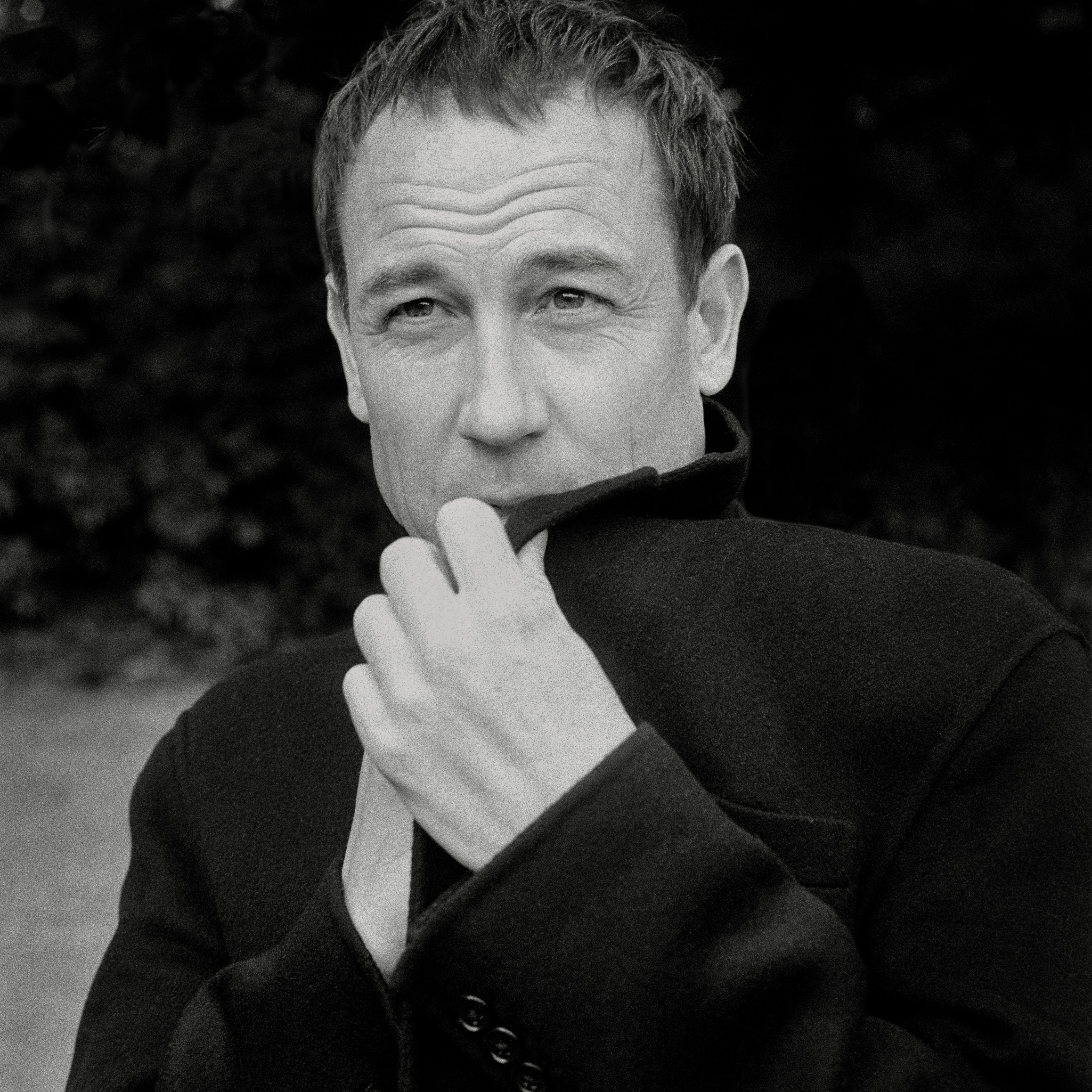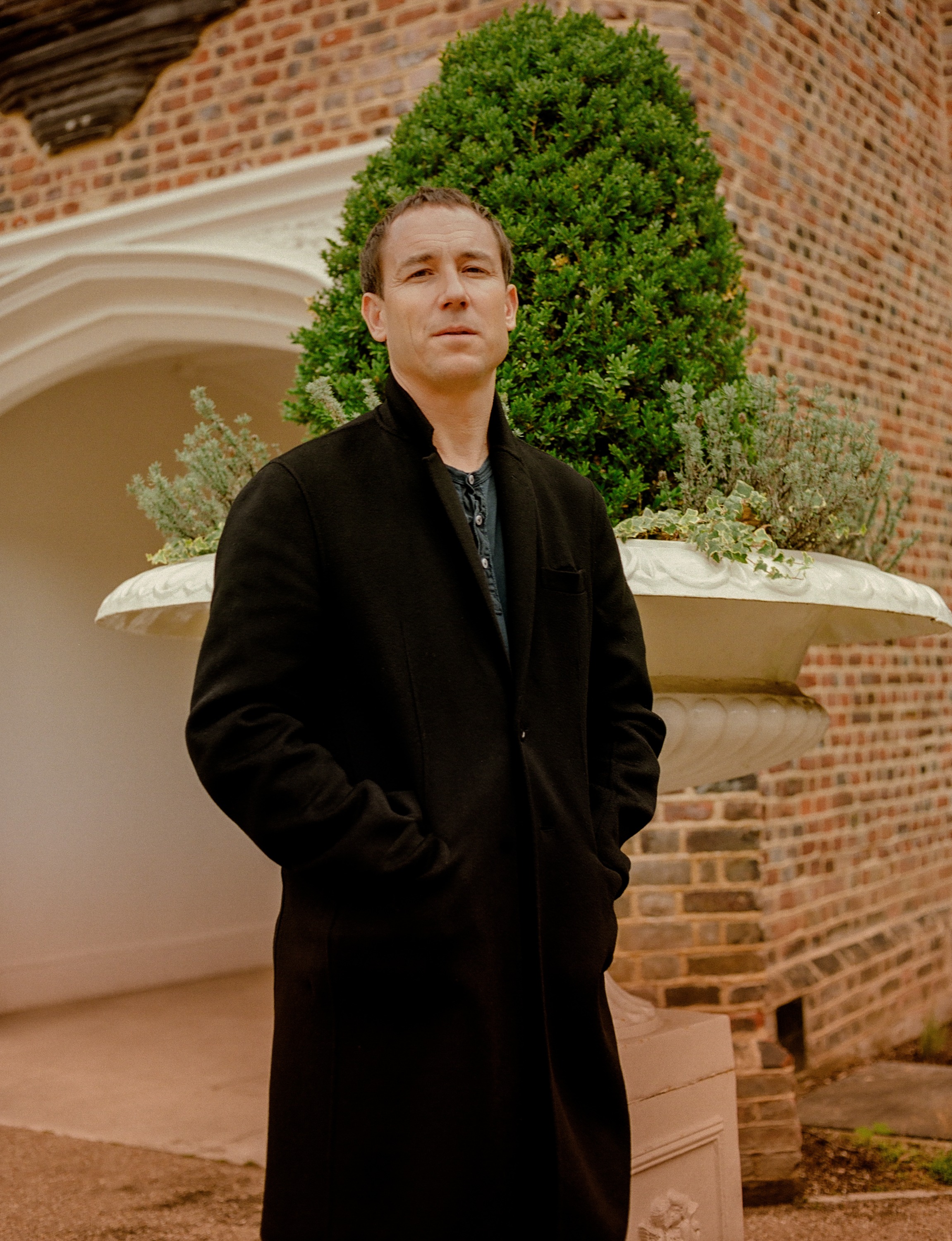https://www.ft.com/content/dc79d7b0-b575-4d22-a86c-550375f89500
Actor Tobias Menzies: ‘It’s such a strange role Prince Philip has’
Fame is tricky for an actor. Too much is professionally hazardous, says Tobias Menzies. “There is a profound chemical thing that changes when someone becomes very, very visible; the world [transforms for] that person.
“I like to be able to watch the world and not have you watch me too much,” he adds. “A big part of being an actor is observing behaviour, how people are, how they live.” Celebrity affects the way your performance is viewed too. “I would rather not know who [an actor is] dating or have all their biographical static get in the way of the work.”
Fame is also in the eye of the beholder. To use social media as a crude measure, Menzies is modestly famous: 148,000 Twitter followers, compared with, say, Sir Ian McKellen’s four million. If judged by the number of people in the street who bother him, he is more famous in the US for his TV roles in HBO’s Rome and Starz’ Outlander than in his north London neighbourhood of Kentish Town.
Menzies claims that he couldn’t “deal with too much anyway”. From another actor, I might dismiss this as disingenuous. It’s the sort of thing actors say all the time and, besides, it arrives during an interview about the reprisal of his role as Prince Philip in the latest series of Netflix’s lavish costume epic The Crown.
Yet he is deeply serious about his work. A friend of Menzies who has worked with him describes his approach as thoughtful and intense, committing fully to a role in a process that might have been called “method” in the past. If that makes him sound po-faced, today he is lively and engaging. He’s also pragmatic, aware that fame is a currency that can “influence your career” and open doors to exciting roles and big paydays.
Perhaps more neighbours will recognise him after his second season as Prince Philip, which involved bleaching his eyebrows and sporting a dirty blond wig, though the actor’s hard jaw and long creases on either side of his face remain intact.
More than 70 million households across the world have watched the drama that was created by British playwright Peter Morgan in 2016 and is reportedly one of the most expensive in TV history. In the previous season, which covered 1964 to 1977, Menzies took over the role from Matt Smith, with Olivia Colman as the Queen. It earned him a Golden Globe nomination.
The latest season explores the arrival of Diana in the family and the impact fame has on her marriage to the stodgy Prince Charles. It is also bookended by Margaret Thatcher’s rise and fall as prime minister. The fictional portrayal of the Queen and Prince Philip is a tonic to 2020s audience — offering the comforting thought that at least someone may be in charge.
As preparation, Menzies watched TV footage to study the Duke of Edinburgh’s posture and voice but also to try to understand his personality. “It’s such a strange role [Philip has], it’s highly ceremonial [and] doesn’t really have very much actual power.” He says there is tension between the prince’s supporting role and him being an “alpha male, clearly very active . . . likes to be busy, likes to do”.
That struggle — if such a description can be applied to the royal family — defined Philip’s character in the last series. It was crystallised in an episode that saw him undergo an existential crisis sparked by his sense of impotence, contrasted with the full-throttle ambition of US astronauts rocketing to the moon. In the latest series, Philip appears reconciled to his position and his character arc is more subtle, focused on his relationship with his family.
The opening episode centres on the IRA killing of Lord Mountbatten in 1979. A scene between Philip and Charles shows the complexity of this father-son relationship, each an emotional enigma to the other. Philip sketches a kind of familial love triangle in which Mountbatten played a paternal role to both. “I barely knew my own father,” he says. “Dickie [Mountbatten] understood that and stepped in as a surrogate, which meant the world to me. Then years later, maybe when he saw the struggles between the two of us, he switched horses and started caring for you, I was no longer the priority . . . ”
Menzies, whose performance as Philip is marked as much by what he does not say as what he does, was interested in the role reversal between the two men. “Philip is the more childish figure . . . and Charles plays a slightly more adult role. There seems to be a lot of anecdotal evidence that there hasn’t been a very straightforward relationship. Philip obviously doesn’t find it that comfortable to be around how sensitive Charles seems to be.”
The central contradiction for Menzies is to understand the psychology of a man who would spurn the very idea of analysis. “He would probably not like the way the scene is done,” he reflects.
This empathetic portrayal gives no indication of Menzies’ own disagreement with the hereditary monarchy. Working on The Crown has brought home to him “the benefits . . . and the continuity, particularly in times like now, when things [are] unstable. But has it fundamentally changed my politics? Probably not.”
Menzies, who has tended to vote Labour (“with odd flirtations with the Liberal Democrats”), describes The Crown as “relatively apolitical”, though Gillian Anderson’s charismatic portrayal of Margaret Thatcher is a reminder of the Tory leader’s disruptive — creative or destructive, depending on your view — impact on British society.
This is explored in an episode that depicts the moment when Michael Fagan broke into the Queen’s bedroom in 1982. The juxtaposition of Fagan, portrayed as a victim of Thatcherism, with the cosseted Queen amid the opulence of Buckingham Palace, becomes a way of looking at the country through the prism of two personalities. Menzies admits: “[Thatcher is] the most divisive prime minister that the show has tried to represent. There may be some pushback this time.”
The Crown finished filming two weeks before the country first entered lockdown. How did he find that period? “Honestly, I found it hard, actually. If you live on your own, meeting friends is an important part of life . . . I’m missing hugs.”
Conscious of his good health and financial buffer, he volunteered via the NHS app. Talking about social duty, he briefly slips into the royal third person. “You’re trying to do what one could because one did feel quite helpless.” Lockdown also taught him that he is a “bit of a workaholic. Work keeps me on the straight and narrow. I really missed the natural rhythms of filming. I used to go to the theatre to see stuff and obviously do it as well.”
As arts organisations are buffeted by the pandemic, Menzies is, unsurprisingly, concerned about Britain’s cultural future. “There seems to be a complicated relationship between this government and the arts. It’s hard not to sometimes feel that may be a tad ideological.”
The 46-year-old worries too about the impact on young actors. “My first years were predominantly in the theatre, sometimes in the regions, travelling around, learning my craft and making mistakes, and getting better, and theatre is an amazing school for that.”
Rupert Goold, artistic director of the Almeida Theatre, has been a friend of Menzies for 20 years and worked with him on numerous plays, including Hamlet and, last year, The Hunt, a stage adaptation of the Danish film by Thomas Vinterberg. He says that while Menzies loves company and conversation, “he is innately private . . . on stage he opens up.
“His approach to rehearsals is [they are] just one section of a 24/7 work,” Goold continues. “He’s endlessly curious — he really loves art, he likes dance, fine art. He’s like a magpie. You do need to be very singular about being a proper artist . . . He still, above all, loves the curiosity of creativity. In actors, particularly men after 40, that becomes rarer but I think he really does.” At the same time, Goold sees in Menzies a detachment that allows him to “talk about acting in an objective way, to see with intelligence what his role is in the piece — sometimes actors can’t see that they are a counterpoint in the story.”
Menzies’ love of theatre was nurtured by his mother, a teacher who divorced his father, a BBC radio producer and writer, and moved Menzies, aged six, and his brother from London to Kent. After leaving school, he went to Stratford-upon-Avon to find out what he wanted to do. “I did some acting, directing, sound design and costume . . . It was the early ’90s, a heyday of physical theatre, visual theatre, dance theatre, Ballet Rambert.”
It was only at Rada that he got the acting “bug”. After graduation, a semi-regular part on the long-running TV medical drama Casualty gave him “camera training”. In 2005, he took the part of Marcus Junius Brutus in HBO’s Rome in the era that saw the “explosion of television”.
Outside of The Crown, he says, “all my significant TV work has been for American companies. I’m taken more seriously over there and that started with Rome.” The show also provided opportunities beyond acting. “When you’re in at the ground level, [you can] have quite a lot of [creative] input . . . That’s certainly been true of Rome and shows like Outlander.”
Outlander, a time-travel drama, saw Menzies switch between two roles — the honourable postwar historian Frank Randall and the sadistic 18th-century Captain Black Jack Randall, fighting Highlanders in Scotland. Rolling Stone magazine labelled the character of Randall one of the greatest TV villains of all time, “glowering and growling through every scene as though he’s a man incapable of experiencing pleasure at all, except at the expense of other people”.
It became a “big show” for Menzies, earning him his first Golden Globe nomination, but he says at the start “no one really cared what we were doing up in Scotland, we were all pretty unknown. That first season, the writers and the directors, the showrunners and us, we really formed that together. That aspect, being pretty involved in creative conversation, is really great.” The challenge is how to evolve a character over time.
Game of Thrones, in which he played the character of Edmure Tully, was very different. “I dived in and out, plugging into something that was very, very highly realised already.” The Crown was different again, playing a character whose tone had been established by a different actor.
At first, he says, working in front of a camera felt “less instinctive” than theatre but it is something that he has come “to love a great deal”. In December, he will start shooting a second series of Channel Four’s dark comedy This Way Up, with Aisling Bea, in which he plays an English father who is so reserved that a tiny physical gesture is achingly emotional. “I love the show. I think Aisling’s made something really kind of unusual, funny, but also had a lot of kindness and heart and sadness,” he says.
A benefit of bigger-budget TV shows such as The Crown is that the higher pay allows him the freedom for doing periods of theatre. (A cherished role was the doctor in Robert Icke’s 2016 radical updating of Chekhov’s Uncle Vanya, which the FT praised for Menzies’ dexterity at “portraying an ostensibly offhand cynicism while nursing a secret kernel of self-regard”. Menzies calls it “some of the best work I’ve been involved with in theatre”.)
But in 2018, The Crown sparked controversy when Claire Foy, who played the young Queen in series one and two, discovered she earned considerably less than Matt Smith, her on-screen husband.
This has been reversed in the current series but Menzies is relaxed about Colman earning more than him. Earlier this year, the pair turned up to the Golden Globes wearing 50:50 pins to support sex equality among actors. He describes their pay gap as “proportionate” because she brings “a huge amount to the show and is significantly more visible. Olivia getting paid more than me is the exception rather than the rule,” he adds. “There’s still some way to go.”
Actors’ pay is the ultimate star system, with disparities hidden. “If we want to sort it out and get it more equal, regular transparency will be required,” he says. “I’d definitely be in favour of that. It [would] probably flush out some of the worst excesses of unequal pay. I’d be happy to share what I earn more.”
What did he earn for The Crown? Transparency only goes so far. “What I mean is solidarity and clarity between actors is good because it does mean that companies can’t play actors off each other. In the secrecy and the silence, [film and TV] companies are able to pay women less than men.”



























